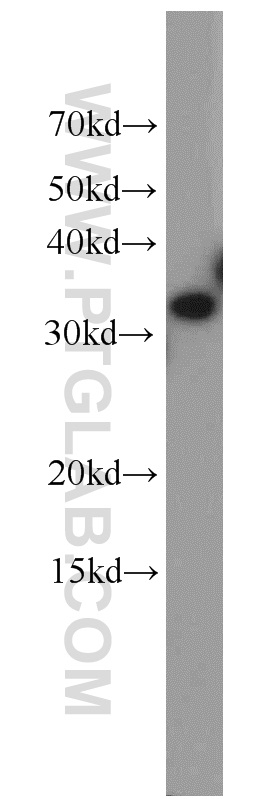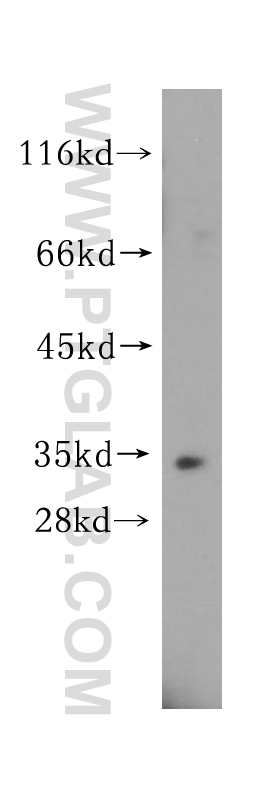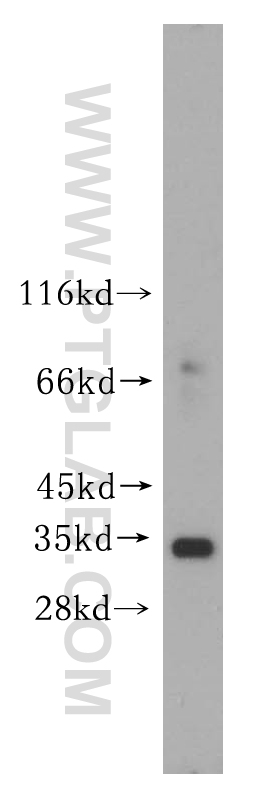验证数据展示
经过测试的应用
| Positive WB detected in | K-562 cells, HAP1 cells |
推荐稀释比
| 应用 | 推荐稀释比 |
|---|---|
| Western Blot (WB) | WB : 1:500-1:2400 |
| It is recommended that this reagent should be titrated in each testing system to obtain optimal results. | |
| Sample-dependent, Check data in validation data gallery. | |
产品信息
15244-1-AP targets ESD in WB, ELISA applications and shows reactivity with human samples.
| 经测试应用 | WB, ELISA Application Description |
| 经测试反应性 | human |
| 免疫原 | ESD fusion protein Ag7457 种属同源性预测 |
| 宿主/亚型 | Rabbit / IgG |
| 抗体类别 | Polyclonal |
| 产品类型 | Antibody |
| 全称 | esterase D/formylglutathione hydrolase |
| 别名 | S-formylglutathione hydrolase, Methylumbelliferyl-acetate deacetylase, FGH, Esterase D, EC:3.1.2.12 |
| 计算分子量 | 31 kDa |
| 观测分子量 | 30-34 kDa |
| GenBank蛋白编号 | BC001169 |
| 基因名称 | ESD |
| Gene ID (NCBI) | 2098 |
| RRID | AB_2101686 |
| 偶联类型 | Unconjugated |
| 形式 | Liquid |
| 纯化方式 | Antigen affinity purification |
| UNIPROT ID | P10768 |
| 储存缓冲液 | PBS with 0.02% sodium azide and 50% glycerol , pH 7.3 |
| 储存条件 | Store at -20°C. Stable for one year after shipment. Aliquoting is unnecessary for -20oC storage. |
背景介绍
Esterase D (ESD) is a non-specific esterase widely distributed in various organisms and is also named S-Formylglutathione Hydrolase (SFGH). ESD is a member of the carboxylesterase family and has both carboxylesterase and thioesterase activities. ESD plays an important role in the process of glutathione-dependent detoxification, regulating cholesterol efflux and virus infection in humans, and is closely related to the development of tumors. ESD as a Genetic Marker for Retinoblastoma (PMID: 32247735, PMID: 34875997, PMID: 35627173). The calculated molecular weight of ESD is 31 kDa.
实验方案
| Product Specific Protocols | |
|---|---|
| WB protocol for ESD antibody 15244-1-AP | Download protocol |
| Standard Protocols | |
|---|---|
| Click here to view our Standard Protocols |



